Search Results
Search
Filter results
Advanced Filters
Your search returned 141 Solutions
-
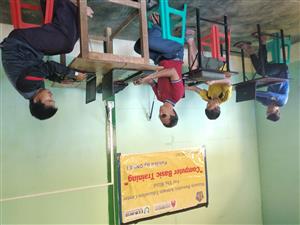
Building a tech infrastructure, training, and IT job creation for persons with visual impairments
Living Dignity for the Blind, Myanmar: Offers decentralized training for visually impaired individuals in remote areas. The program has expanded to several regions, with trained individuals finding tech-related jobs.
Promoting technology and capacity-building towards employment, Myanmar -
Moving from the guardianship to the social autonomy model of disability
The Law for the Promotion of Personal Autonomy of Persons with Disabilities, approved in Costa Rica in 2016, provides the right to a personal assistant. This is requested through the Public Agency for the Disabled, and in 2022 there were more than 200 people receiving this service.
Morpho Independent Living Center, Law for the promotion of the personal autonomy of persons with disabilities, Costa Rica -
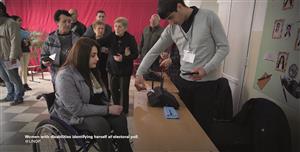
Election policy toolkit of a UN agency for persons with intellectual disabilities
In 2021 the Multi-Partner Trust Fund of the UN Partnership on the Rights of Persons with Disabilities (PRPD MPTF), UNDP, and Inclusion International developed the first toolkit in easy language to promote the participation of people with psychosocial and intellectual disabilities in political processes. By 2022 the toolkit was being used in more than 30 countries. The United Nations Partnership on the Rights of Persons with Disabilities (UNPRPD), Toolkit for Political Participation of Persons with Intellectual or Psychosocial Disabilities,
-
Housing and life-skills programme for adults with intellectual disabilities
In 2008, Mexico’s Fundación Inclúyeme began operating a programme that enables adults with intellectual disabilities to live independently by providing inclusive and serviced housing, support in finding employment, and recreational activities. By 2022 up to 3,000 people have benefited from the programme.
Incluyeme Foundation, Inclúyeme Adult Life programme, Mexico -
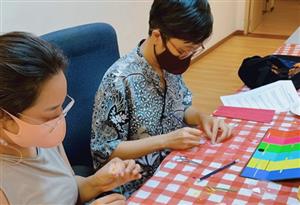
Programme enabling persons with disabilities to learn about sex and relationships
DisOrdinary Love’ is a no-cost programme that addresses issues around sex and sexuality through online workshops and one-on-one consultations with qualified sexuality counsellors. The programme was initiated in 2018 by the Disabled Peoples Association in Singapore and had more than 300 participants by 2022.
DPA - Disabled People's Association Singapore, DisOrdinary Love, Singapore -
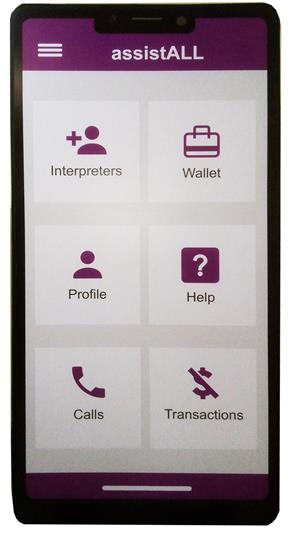
Sign language translation app for accessing services and businesses
Signs Media Kenya is dedicated to education, information, and entertainment in sign language. The social enterprise operates a news channel and has developed ‘2022 assistAll – an app that provides on-demand, 24/7 interpretation services and is available in English as well as Saheli.
Signs Media Kenya Limited, assistALL, Kenya -
Smartphone app that provides audio descriptions of surroundings
RightHear is a start-up from Israel that uses beacons (small radio transmitters) as orientation aids. Nurtzer:ins receive information directly into their earphones once the app has detected the location. By 2022, RightHear had more than 30,000 customers and covered more than 2,100 locations worldwide.
Right Hear, RightHear, Israel -
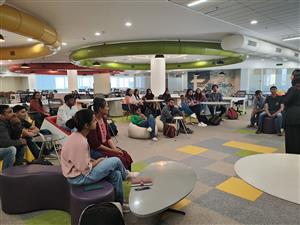
Pre-incubator supporting social innovation and entrepreneurship in assistive technology
Digital Impact Square (DISQ) by Tata Consultancy Services Foundation, India: Incubation programme for Assistive Technology start-ups. By 2023, supported eight start-ups, improving the lives of over 100,000 persons with disabilities and their caregivers.
Digital Impact Square (DISQ), India -
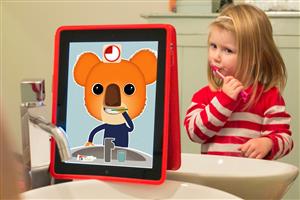
Teaching skills to children with autism using animated video
In 2013, Signes De Sens from France together with the Centre Ressources Autismes Hauts-de-France created ‘Ben the Koala’, a cartoon character that teaches children with autism everyday tasks such as brushing teeth and getting dressed. Dissemination takes place via videos, mobile apps, and printed materials.
Signes de sens, Ben le Koala, France -
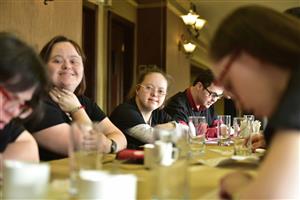
Facilitated self-advocacy groups for people with Down Syndrome
In 2017 the Down Syndrome Association of Turkey launched the self-advocacy group Voice+1, which organizes regular meetings supported by facilitators. By 2022, Voice+1 has grown to 27 self-advocates in five cities and has resulted in the establishment of a Down syndrome research commission in parliament.
Down Syndrome Association, My Voice, My Society – Voice+1, Turkey